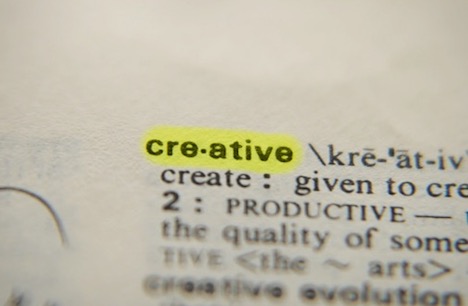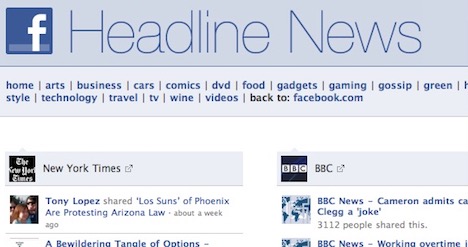15 Facts and Secrets on Facebook’s Fake News Problem
The recent US elections have triggered another grave problem in the social media networks which is quite worrying. While the millennia’s consider Facebook as the major source of news from the world over, the fake news pouring in and out of this popular social media network have them thinking over an alternative source.
The news publishers had been quite worried about this new trend. In fact, the issue was so grave that almost up to 60% of the Facebook users never went beyond it for keeping themselves updated on whatever was happening around them. But during the US elections, the way fake news was spreading through Facebook had even the people directly involved with it quite worried.
According to sources very close to Facebook and its employees, they are coming up with better algorithms to curb the tendency of fake news going viral through their network. How they can do it in the vast World Wide Web can be quite questionable! But they are definitely considering using the existing options more efficiently such as flagging fake news sources to eliminate them to make sure that Facebook and other such popular social media networks that are so popular among the youngsters do not fall prey to anti-social elements.
Let us analyze some aspects that make Facebook vulnerable to fake news and some others that can make the information shared more reliable:
1. Setting the Flags
Facebook has an option to report the posts as inappropriate. We can use this to report the sites and accounts that post inappropriate content so that it will be notified to Facebook and never appear on our feeds. But these sites are only blocked for us as they are live for everyone else who has not set them inappropriate. The issue with flagging is that even the fair sites can be flagged falsely which will end up blocking the good sites too. Another flag for fake news, if added, can help a lot in curbing the fake news sites from flourishing.
2. Eliminate or Block Accounts that Post Fake News
This is definitely something we can all do by ourselves. We can unfollow / unlike the pages that seem to be posting fake news. By and far, this is an effective way to avoid the silly websites that have made its priority to post all sorts of fake news to create panic. Though they won’t be blocked, you will no longer get those feeds and also do not have to forward them.
3. Hacking Can be a Problem too!
Sometimes, the fair accounts are hacked and such fake news is posted which ultimately ends up going viral. With the increasing hacking attempts of the recent times and many getting successful, one needs to verify with outside sources on suspicious news coming regularly from unsuspected accounts.
4. How Do You Say What’s Genuine and What’s Fake?
This is more than often a big issue! How do we know what’s genuine and what’s fake? The best way is to cross-check with the concerned authorities ourselves before we forward them!
5. Cannot Ban the Websites!
There’s no way Facebook can ban websites and other sources from posting their content on their platform. Even if one account is blocked, they will come up with another which will be in use until a large number of users complain.
6. Color Code Authentic News
Facebook has to come out with color-codes to highlight the authentic news feeds posted by authorized news portals that have a good reputation of posting only genuine news. Even if the post goes viral, using the color code, we can easily identify the genuine posts by the color code and ignore the rest.
7. Rope in Fact-Checking Partner Sites
This is a great way to check the genuineness of news posted and shared on Facebook. Facebook might be considering this option to seriously mend its reputation that was recently damaged by the surge of fake news.
8. Check Whether Headline and Content Match
This is a simple hack to follow. Most of the fake news comes with a mismatched title and content. If Facebook can run an algorithm to check whether the headline and the content matches. If the headline talks about something which is not at all mentioned in the content, it is a spam and needs to be removed from the news feeds.
9. Separate Sites and People that Propagate News
Sometimes it is sites that propagate fake news and some other times it is people that do the same. When a person is propagating fake news, there’s little chance that people who do not know the person will believe it and share it. But when sites publish them, it is more likely to get viral.
10. Add Verified Media Pages
If media pages can be verified, then they are less likely to propagate fake news. So unlike the current way of allowing users to create and promote all type of pages, if Facebook brings in authorization for media pages, it can also help reduce propagation of fake news.
11. Restrict or Delay Re-Sharing
Most of such content go viral because of social media sharing. If there’s a time-delay set after which only sharing the content is allowed, by that time, Facebook can verify the news and remove or block it. This will curb the tendency to share and make such news viral.
12. Add More Stories that Run the Same News
When more than one version of the same news is made available, the audience will also check them and realize the discrepancies. They can then decide on getting a verified version from other sources.
13. Set News that You Don’t Want to See
This option is available even now. You can set news and sites that you do not want to see. So if you are sure of some websites or pages that always propagate fake news, you can just unfollow them.
14. A Fact-Checking Tool or Plug-in
If Facebook can come up with a fact-checking tool or a plug-in that can be downloaded and installed in the browser, users can benefit from it largely. This way, as the page loads, all marked fake news will be removed from the display.
15. Cross-Check Content Against Genuine Sources
Though it is not as easy as it sounds, the ultimate way to find out whether some news is genuine or not is by verifying it against known sources that are trustworthy.
Author: Anakha KG
Anakha is a content writer at Code9 Technologies, a web design company in Cochin, Kerala. She is well-experienced in web design and also a passionate about music, reading and writing non-tech articles. She also works on some freelance marketplaces.
You May Also Like:
 20 Most Shocking Social Media Facts and Secrets
20 Most Shocking Social Media Facts and Secrets
 6 Helpful Tips to Better Manage your Facebook News Feeds
6 Helpful Tips to Better Manage your Facebook News Feeds
 20 Facts and Secrets Facebook Knows About You
20 Facts and Secrets Facebook Knows About You
 15 Ways to Control Your Facebook News Feed
15 Ways to Control Your Facebook News Feed
 2 Facebook Apps to View and Manage Your News Feed
2 Facebook Apps to View and Manage Your News Feed
 15 Tweaks to Customize Your Facebook News Feed
15 Tweaks to Customize Your Facebook News Feed
 5 Technology Hoaxes & Fake Ads that Successfully Fooled the World
5 Technology Hoaxes & Fake Ads that Successfully Fooled the World
 9 Secrets for Making Your Online Content Go Viral
9 Secrets for Making Your Online Content Go Viral
Tags: facebook, hoax, it knowledge, social media
Comments are closed.
















































